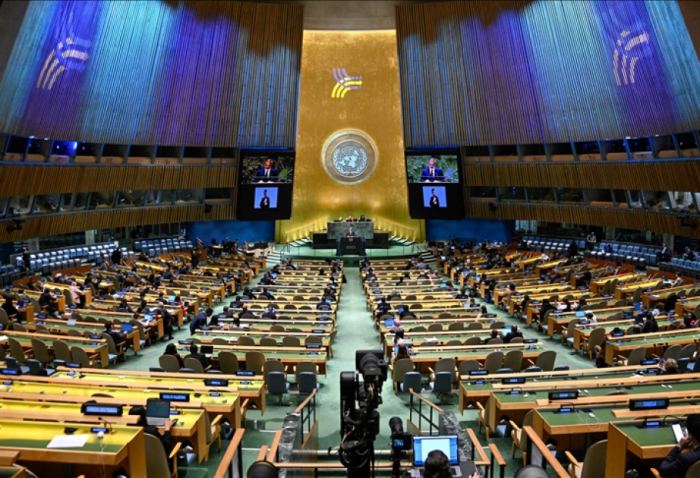UN Secretary-General Antonio Guterres set the tone in his opening remarks, acknowledging that global inequalities are reflected in international institutions.
He pointed out that the UN Security Council was designed by the victors of the Second World War, when much of Africa was under colonial rule. Guterres stressed the need for African representation on the council, while recognizing the potential resistance from those with political and economic power.
Turkish President Recep Tayyip Erdogan echoed these sentiments, declaring that the UN has become increasingly dysfunctional and ineffective in fulfilling its founding mission. International peace and security are too important to be left to the whims of "five privileged countries," Erdogan stated, reiterating his longstanding call that "the world is bigger than five."
Brazilian President Lula da Silva highlighted the urgency of comprehensive reforms, stating that the current UN Charter fails to address some of humanity's most pressing issues. He called for a thorough review and revision of the Charter, focusing on the General Assembly's structure, working methods, and veto powers.
Indian Prime Minister Narendra Modi stressed that reform is "imperative" in global organizations like the UN. Humanity's success lies not in the battlefield, but in its collective strength for global peace, Modi said.
South African President Cyril Ramaphosa described the Security Council's current structure as "outdated and exclusionary," demanding the inclusion of African nations and others in the council's decision-making process.
Several leaders highlighted the UN failure to effectively address the ongoing conflicts. Jordan's King Abdullah II pointed to a crisis threatening the UN legitimacy and moral authority.
Maldivian President Mohamed Muizzu called for courage in stopping "the genocide war in Gaza" and admitting Palestine as a full UN member.
Indonesian Foreign Minister Retno Marsudi emphasized that one of the strategic goals of the UN Future Summit is a “comprehensive world order” and called for more coherent and effective global governance, including reform to the UN Security Council.
Tajik President Emomali Rahmon said that in order to achieve sustainable development in the world, the UN and its organizations, should take more active steps to coordinate the efforts of the world community.
Serbian President Aleksandar Vucic highlighted the need for rebuilding the credibility of the UN and said double standards must end.
East Timorese Prime Minister Xanana Gusmao said his country advocated for structural reform to the Security Council, which has become "unrepresentative of today's realities.”
AzVision.az
More about: UN SecurityCouncil
















































